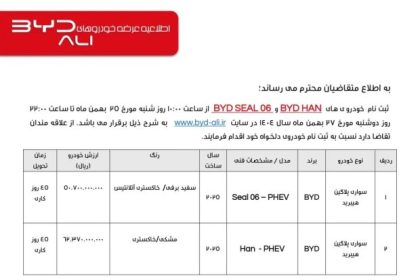Germany is one of the most popular and advanced countries in Europe, which has become an attractive destination for medical and dental professionals due to its high standard of living, strong economy and advanced healthcare system. International dentists, especially from countries like Iran, can use the job and training opportunities available in Germany and achieve a successful life and career in this country. In this article, we will examine the stages and conditions of dentists’ migration to Germany, job opportunities and possible challenges.
1. Why is Germany an attractive destination for dentists?
Germany is one of the attractive destinations for professional dentists from all over the world due to its advanced healthcare system, extensive job opportunities and high living standards. With the increasing demand for dental services, decent income and safe working environment, this country provides ideal conditions for professional growth. In addition, dentists in Germany can benefit from advanced technological facilities and continuous opportunities to improve their expertise. Also, Germany, as one of the leading countries in education and research, provides dentists with suitable platforms for developing new knowledge and skills.
Dynamic labor market and need for specialists
Germany is one of the countries that desperately needs medical and dental professionals. Due to the aging of the population and the growth of health needs, the labor market in the field of health and treatment in this country is expanding. Many areas of Germany, especially rural areas and small towns, are facing a shortage of dentists, and thus, job opportunities for foreign dentists are plentiful.
Good income and working conditions
Dentists in Germany have high incomes and good working conditions. Dentists’ earnings vary depending on experience and location, but are generally higher than other occupations. Also, health facilities and advanced technologies in German clinics and hospitals provide ideal conditions for dentists.
The possibility of professional and educational advancement
Germany has an advanced education system that allows dentists to update their skills and advance in various dental specialties. After immigrating, foreign dentists can participate in training and internship courses and get to know the world’s technologies and standards.
Our other suggestions for you: Review everything you need to know about dentist immigration to Denmark
2. Conditions and documents necessary for dentists to immigrate to Germany
To immigrate to Germany and work as a dentist, you have to go through various steps and provide certain documents. Below we review the necessary conditions and documents:
2.1. Valid educational qualification
The first requirement to work as a dentist in Germany is to have a valid degree in dentistry from a recognized university. Dentists who have studied outside of Germany must have their qualifications certified by the German health authorities. This process is called “Unrecognizable(Anerkennung) It is known and its purpose is to check the compliance of educational qualification with German educational standards.
2.2. Fluency in German
To work as a dentist in Germany, a command of the German language at level B2 and preferably C1 is necessary. This level of language is necessary to communicate with patients and colleagues. Many international dentists take intensive German language courses in their home countries or in Germany before immigrating.
2.3. Work permit and medical license
Dentists need to work in Germany work permit and Medical license approval have A medical license allows dentists to practice legally in Germany. This license is issued after the verification of educational qualifications and passing professional evaluation procedures.
2.4. Assessment tests
In some cases, foreign dentists must participate in assessment tests to prove their scientific and practical skills. These tests are held to ensure that the dentist’s knowledge and abilities match the German standards.
2.5. passing the equivalence courses (Anpassungslehrgang)
If the qualifications of foreign dentists do not fully meet the German standards, they may be required to complete equivalence courses. These courses help dentists become familiar with the laws, regulations and treatment methods used in Germany.
3. Procedures for dentists to immigrate to Germany
Immigrating to Germany and starting to work as a dentist requires certain steps. Below are the main steps of this process:
3.1. Evaluation and verification of educational qualifications
The first step for immigration is the evaluation of educational qualifications by the German health authorities. Your documents must be translated into German and certified by a competent authority. Then these documents are sent to one of the document evaluation organizations in Germany.
3.2. Registration for medical license (Approbation)
Once the qualifications are approved, dentists must apply for a medical license. This permit allows you to officially and legally work as a dentist in Germany. In order to obtain this permit, you usually have to provide educational qualifications, a certificate of German language proficiency and a health certificate.
3.3. Participation in evaluation tests (if necessary)
Some foreign dentists may need to participate in scientific and practical evaluation tests. These exams are held to check the professional and practical abilities of dentists, and if they succeed, it is possible to get a medical license.
3.4. Find job opportunities
After obtaining a medical license, dentists can seek career opportunities in clinics, hospitals, and health centers in Germany. Due to the shortage of dentists in some areas, especially rural areas, Germany provides good job opportunities for foreign dentists.
3.5. Work visa application
After verifying the documents and finding a job opportunity, you can apply for work visa Germany take action. For this purpose, you must receive a job offer from an employer in Germany and then submit a work visa application to the German embassy in your country.
4. Career opportunities and benefits of working in Germany for dentists
As one of the leading European countries in the field of healthcare, Germany provides a wide range of career opportunities for dentists. With an advanced health system, high demand for dental services and a stable labor market, the country has become an attractive destination for dental professionals from around the world. Dentists in Germany enjoy many benefits such as high income, job security, favorable working conditions and advanced facilities. In addition, ongoing opportunities for professional development and learning provide an environment conducive to professional growth. These factors have made Germany one of the best work destinations for dentists seeking advancement and international experience.
4.1. High income and good working conditions
Dentists in Germany have a high income. The income of dentists varies depending on the experience, place of work and type of specialization, but on average, the annual income of dentists in this country is very reasonable and has a high level compared to many other countries.
4.2. Advanced facilities and educational opportunities
Germany’s healthcare system is one of the most advanced in the world in terms of medical and dental equipment. Dentists in Germany have access to the latest dental technologies and tools, which improves the quality of medical services and also enhances their professional experience. In addition, Germany provides numerous opportunities for specialized training and advanced dental courses.
4.3. Job security and work-life balance
Dentists in Germany have high job security. Due to the constant need for dentists in this country, stable and secure job opportunities are available for specialists in this field. Also, the balance between work and life in Germany is given special attention and many employers provide suitable working conditions and regular working hours for their employees.
5. Challenges of immigrating to Germany for dentists
Immigrating to Germany for dentists, although it comes with many professional opportunities, but also faces many challenges. Among these challenges are adapting to the German legal system and medical regulations, learning the German language at a specialized level, and the long process of evaluating and verifying educational qualifications. Also, immigrant dentists must adapt to new professional and cultural standards and may need to undergo additional training courses or specialized exams. Despite these challenges, Germany is considered an attractive destination for dentists applying for immigration with advanced infrastructure in the field of healthcare and suitable job opportunities.
5.1. German language
One of the biggest challenges for foreign dentists is learning German. Fluency in German is essential for working in the treatment department and communicating with patients. Although there are some training courses in English, you need to be fluent in German to work as a dentist.
5.2. Bureaucratic processes
The legal and administrative procedures of immigrating to Germany and obtaining a medical license may be complicated and time-consuming. Evaluating educational qualifications, participating in exams and obtaining a medical license require time and effort. Also, dentists must be able to prepare and present all the required documents correctly.
6. Approximate income of dentists in Germany
The income of dentists in Germany varies depending on factors such as experience, workplace, and type of professional activity. In general, the average income of dentists in Germany is as follows:
- Junior dentists: Junior dentists typically earn between €45,000 and €60,000 per year.
- Experienced dentists: As experience and skills increase, dentists can earn 70,000 to 100,000 euros per year or more.
- Specialist dentists: Specialist dentists, such as maxillofacial dentists, orthodontists, etc., may earn between €100,000 and €150,000 or more per year.
These incomes depend on various factors, including the place of work (hospital, private clinic or self-employed), the number of patients and working hours. In general, dentistry in Germany is recognized as a well-paid and prestigious profession.
Conclusion: Is immigrating to Germany a good choice for dentists?
Immigrating to Germany is a golden opportunity for dentists to advance professionally and achieve better working conditions. Despite challenges such as learning the German language and administrative processes, benefits such as high income, job security, high quality of life and numerous training opportunities make Germany one of the best destinations for dentists. If you are looking for a new experience and advancement in the dental profession, Germany can be the right choice for you.
At the Caspian Immigration Institute, we are ready to answer your questions and doubts at any hour of the day and night for free, with the presence of our experienced consultants. To communicate with our immigration consultants and lawyers, you can use the consultation request form or the numbers listed on the “Contact Us” page.
Our suggestion is to immigrate dentists to the following countries:
Everything about obtaining a work visa for dentists in Austria
Residence in Denmark for nurses, doctors and dentists
RCO NEWS

















